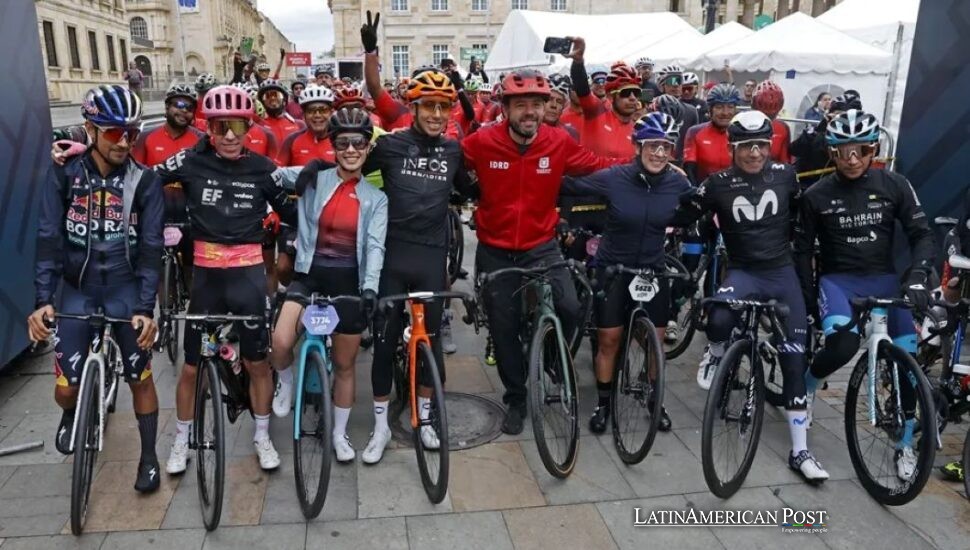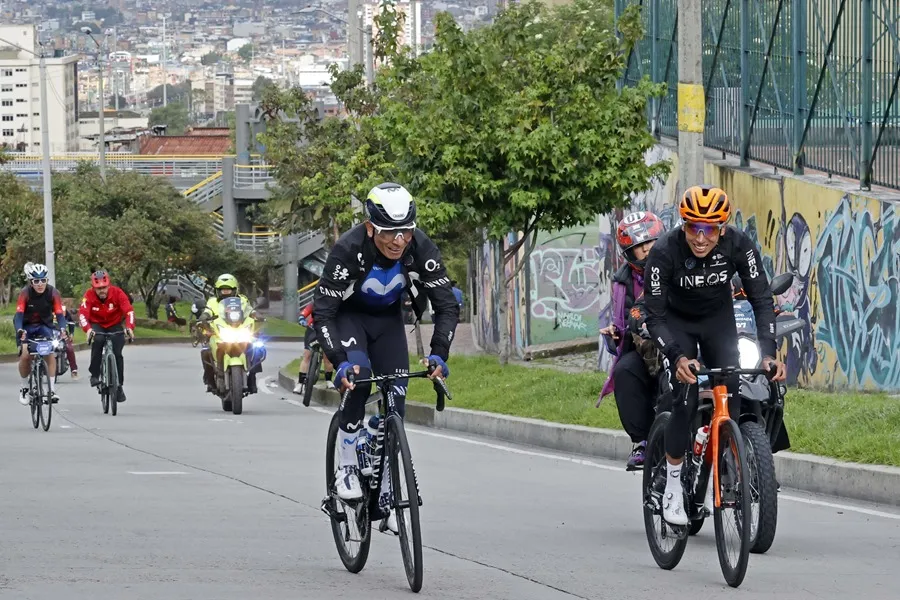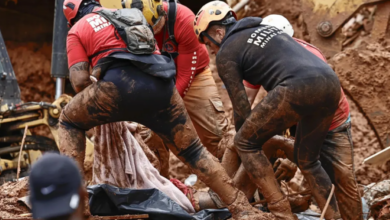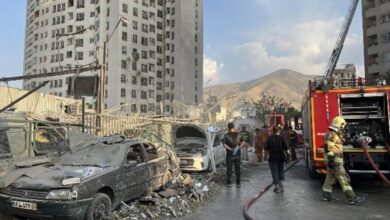When Politics Ride Shotgun: Latin America’s Cyclists Navigate a Sport Built on Fragile Money

As cycling leans ever harder on nation-state sponsorship—from golden Pogacar statues in Abu Dhabi to protest-snarled stages in Spain—Latin American riders face choices that go far beyond watts and race programs. Contracts, visas, safety, and reputation now hinge on geopolitics as much as performance.
Golden Statues, Darker Shadows
On November 1, in a sun-scorched plaza in Abu Dhabi, the local Cycling Club unveiled a life-sized golden statue of Tadej Pogacar, immortalizing the bow he made famous during a season that delivered the Tour de France, the road-race world title, and three Monuments. Pogacar flew in, posed, bowed again. Behind the ceremony, cameras caught the logo of UAE Team Emirates, the squad that bankrolls his stardom and underwrites the moment.
But cycling’s bright surfaces can’t hide its darker mirrors. Just six days before the unveiling, the Sudanese city of El-Fasher fell to the Rapid Support Forces—an armed faction accused by the U.N. of grave human-rights abuses, including atrocities that investigators say may amount to genocide. The UAE denies supporting the RSF. Yet analysts cited by The Athletic have pointed to weighty evidence of financial and strategic ties, noting that the Emirates “continues to benefit from Sudan’s conflict gold.”
Against that backdrop, a golden statue of a European superstar—funded by a state accused of enabling horror—hit the sport like a cold wind. When asked at the Tour de France about the UAE’s geopolitical record, Pogacar offered the usual protective script: “The sport is growing,” he said, adding that the team aims “to promote a healthy lifestyle.” Days later, his teammates were chanting “U-A-E!” in Paris.
Cycling has long been uneasy with its own compromises. But rarely does the contrast—glittering triumph and geopolitical bloodshed—appear so stark in the same news cycle.
When Teams Become Nation Brands
Cycling is one of the only major sports without a stabilizing pot of shared broadcast revenue. Teams survive by selling not just jersey space but identity itself, sometimes renaming the entire squad after whoever pays the bills.
The result is a peloton that looks less like a league and more like a global bazaar: shampoo brands drafting behind supermarkets, tech conglomerates riding alongside petro-states. And in recent years, nation-state teams have taken over the marquee—UAE Team Emirates, Israel-Premier Tech, Bahrain Victorious, Astana, Jayco-AlUla—each carrying the political baggage of its patrons into towns lined with schoolchildren and into social-media whirlpools where nothing stays apolitical for long.
This year’s Vuelta a España offered a vivid preview of what the sport may face in 2026. Stages were disrupted by mass pro-Palestinian demonstrations targeting Israel-Premier Tech. Riders worried about safety as roads were blocked. Fans questioned whether conflict and sport can share a finish line.
The consequences went beyond protest. Israel-Premier Tech insists it is privately owned, but co-owner Sylvan Adams has repeatedly described himself as an “ambassador-at-large for the state of Israel,” blurring lines that sponsors and riders must then navigate. Premier Tech, the Canadian co-title partner, urged a rebrand that removed “Israel” from the name. Talks broke down. Then the company announced it would step aside.
Canadian climber Derek Gee terminated his contract, telling The Athletic he did so “with just cause,” citing safety and belief-based concerns. The team disputes his account and has taken the matter to UCI arbitration, telling The Athletic it is “unable to comment.”
Whatever the ruling, the message is clear: the money that sustains a team can just as easily tear it apart. This is the dependency that defines modern cycling. And riders who grew up pedaling the Colombian páramo or the heights of Ecuador now find themselves making career choices based on crises thousands of miles from home.

What This Means for Colombian, Ecuadorean, and Mexican Riders
For Latin American riders—particularly Colombians, Ecuadoreans, and Mexicans—geopolitics isn’t abstract. It shapes paychecks, visas, safety protocols, and reputations.
Many of the peloton’s most gifted climbers come from the Andes, young men who carry stories of altitude and hardship that teams love to promote. But signing contracts is no longer a simple question of salary and race calendar. Riders now need clauses once reserved for war correspondents:
Safety guarantees at politically volatile races. Clear exit procedures if a security situation deteriorates. Insurance policies for abandoned stages or evacuated hotels. Protocols for when a sponsor becomes the center of a diplomatic storm.
Gee’s dispute—with its dueling narratives and looming legal bill—shows how costly it can be to invoke “just cause” without explicit contractual protections.
Visa considerations are shifting, too. A rider joining a nation-branded team risks complications at borders, on layovers, or at major airports. A sponsor tied to a government facing sanctions or widespread protests may place a rider under heightened scrutiny. A Colombian phenom signing with a controversial team might find his social-media feeds flooded by domestic criticism before he’s even zipped the jersey.
And stability is not guaranteed on the corporate side either. Teams collapse—Arkéa-B&B Hotels vanished this year. Others merge. Some WorldTour operations admit privately that their budgets hinge on a single fragile sponsor renewal.
For riders from Latin America, the smart money may lie not with the richest state-backed squads nor the flashiest startups, but with organizations that diversify income and invest in human infrastructure—nutritionists, psychologists, education programs, staff retention. These are the support systems that remain intact even when logos disappear.
As one Colombian agent told The Athletic, “You’re not choosing a jersey anymore—you’re choosing a political risk profile.”
Reform Dreams, Reality Checks
Could the model change? Optimists argue that the sport needs an NFL-style revenue share or a Champions League-style central fund. But the sport’s power brokers aren’t eager. ASO, which controls the Tour, the Vuelta, and many classics, has little incentive to share broadcast wealth. The UCI avoids deeper structural reform. And One Cycling, the proposed Saudi-backed overhaul, simply relocates the dilemma to another government with geopolitical baggage.
Licensing sagas—late guarantees for Jayco-AlUla, Astana scrambling for a rescue sponsor in XDS—underscore how precarious the current house is. Superteams demand super budgets. Mid-tiers pray for survival.
For Latin American riders, the lesson is both cautionary and empowering: the glitter of a golden Pogacar statue or a petro-funded salary can be seductive, but it can also be shimmering fool’s gold. The world beyond the race barriers is louder than ever, and the peloton no longer has the luxury of pretending politics stays outside the tape.
Cycling has always been a sport of suffering and calculation—measuring effort, gauging wind, timing the attack. Now riders must measure geopolitics, too. For those from Colombia, Ecuador, and Mexico, the road ahead is steeper than it looks on television. But they’ve climbed worse. And in a sport built on fragile sponsorship maps, the wisest may be those who pick teams not just for watts, but for the worlds their jerseys invite them into.
Also Read: James Rodríguez: Colombia’s Reluctant Nomad Still Searching for a Final Home




